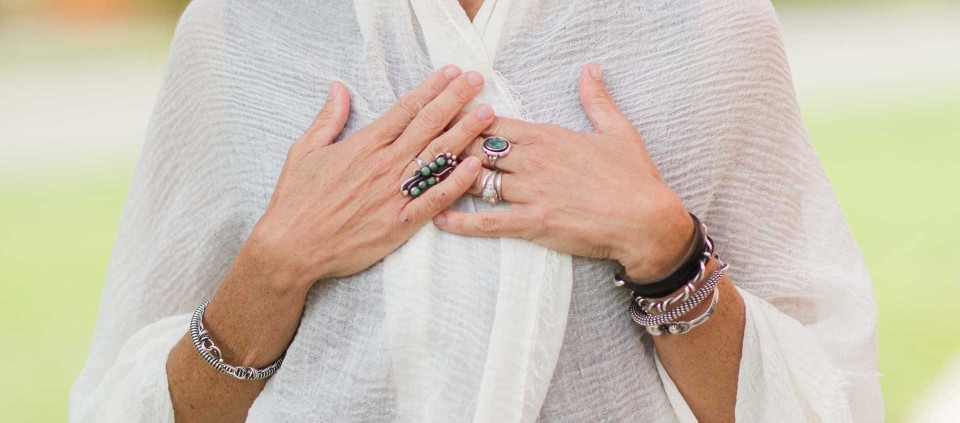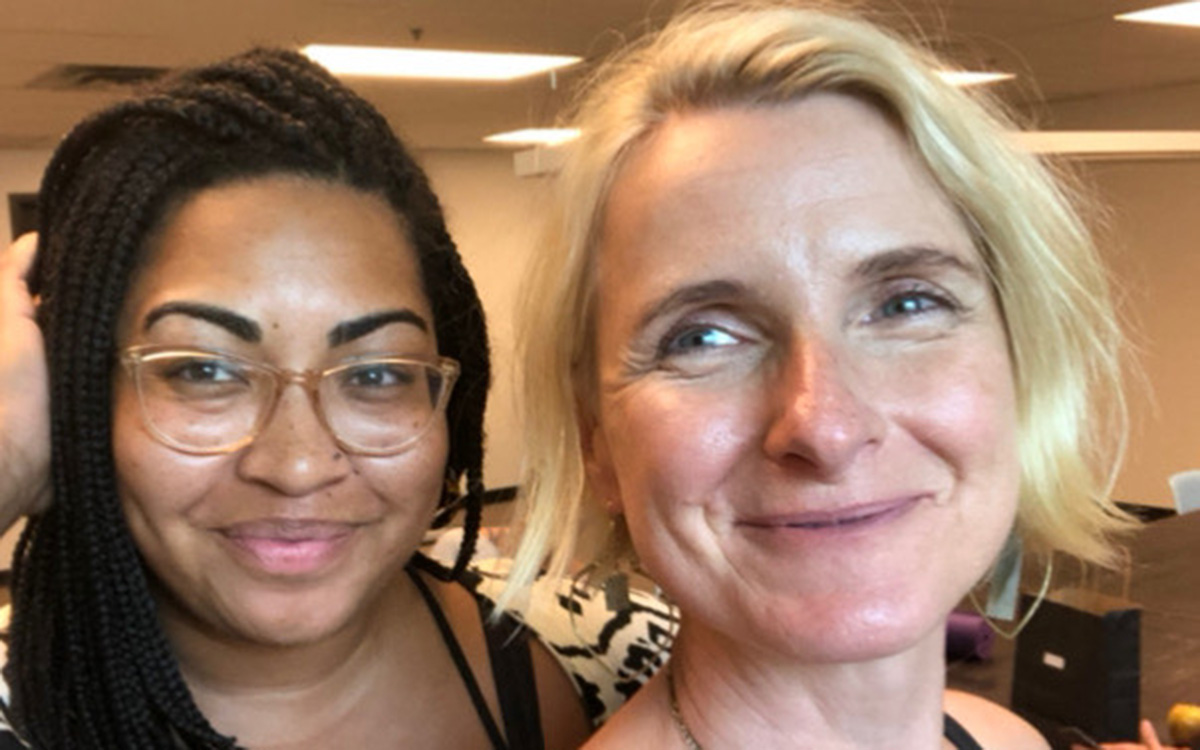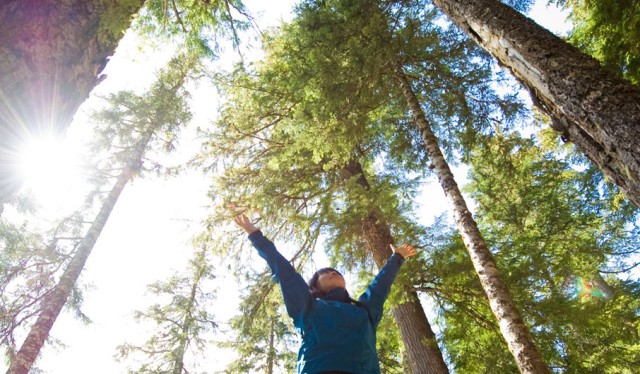Elizabeth Gilbert and Rachel Cargle on Empathy and Compassion

May 11, 2020
by Hannah Wilken
Kripalu means “compassion,” and compassion lives at the heart of our work here. What I’ve been grappling with recently is the link between compassion and empathy—especially with what’s happening in the world right now.
Usually, I pride myself on being an empathetic person. But these days, I’ve been drowning in empathy. Every direction I look, there are people in need of help. I’ve stopped reading the news. I don’t reach out to those who are struggling because I can’t bear the thought of crying again today.
But what does that say about me as a person? As a human? As a yoga practitioner—on and off the mat?
Luckily for me, I was able to seek advice from two wise women and Kripalu presenters: writer Elizabeth Gilbert and social justice advocate Rachel Cargle. Here are excerpts from our conversation.
What kind of relationship do you have with compassion and empathy?
Rachel For me, knowledge, empathy, and action show up as a framework for understanding ally-ship in the social justice world. I’ve recently been looking at the definitions of words like “compassion” and “empathy” and found that we often view them as soft and wispy. I like the idea of looking at them as concepts with a little more edge. They are verbs. They are tangible, actionable things that need to live in practice, not just theory. I’d like to give these words more heft. I want people to act and question themselves regarding these words. I want people to say, “I have strength because I show compassion.”
Elizabeth I love the idea of throwing some heft behind compassion and empathy. This idea dovetails with the work the Dalai Lama has been doing for years, studying neurology and the science of emotion and living through emotional landscapes. Matthieu Ricard, a French Tibetan monk and master meditator who works closely with the Dalai Lama, volunteered to be studied for this research.

What they came to understand is that, during meditation, you go into certain emotional states, certain emotional landscapes. They determined that there can be a danger in over-empathy. Empathy says, I see you’re suffering and now I am in pain because I am suffering for you. Now two people are experiencing emotional pain and two people are suffering. There’s no one on board to give assistance because two people have collapsed. It’s this empathetic collapse—a physiological shutdown. People often call this “generosity” or “love,” but in fact, it’s not a helpful service.
Compassion means, I can see you’re suffering and I will protect myself in order to be in service to you. Compassion requires a tremendous amount of courage—it takes courage to endure someone else’s suffering and not take it on as your own. But by doing this, you can provide service you couldn’t if you were suffering alongside them. If you have the courage to witness and withstand suffering, then you can be of use.
Rachel I love that story, and that idea shows up often in my work. You have to take care of yourself. You have to show compassion for yourself first.
Elizabeth Neither of us, it sounds like, believes in martyrdom.
This is a question for Elizabeth: Your book on creativity is titled Big Magic—how do you define magic?
Elizabeth I’m going to borrow my favorite definition of magic from my friend Martha Beck. It is “Magic is the thing that wants to happen next.” People who do extraordinary things are just in alignment with the thing that wants to happen next. Through their attention to that thing, and their engagement with it, they are able to bring it forth into the world.
Every book I’ve written is the book that wanted to happen next. They each had a desire and willingness of their own, and they exist as they are because I was able to cooperate and listen. We call this magic because it looks easy, but what’s easy about is that, if you listen carefully and trust the feeling, it will look easy because you are in agreement with it.
It sounds a little like surrender.
Elizabeth It sounds a lot like surrender, but it’s more an active spiritual practice—more like a dance. There’s a thing that wants to occur and if you dance with it, you can bring it forth.
A question for Rachel: During a recent lecture you gave with the Dial Press about your upcoming book, I Don’t Want Your Love and Light, you said, in reference to your work on intersectionality, “I’m not the first one to do this—it’s just my turn.” I’d love to hear your thoughts on the relationship between intersectionality, creativity, and freedom—how do they work together? Can one exist without the other?
Rachel This relates to what Liz just spoke to. Her definition of magic sounds the same as my definition of genius. It’s something my friend EbonyJanice Moore and I talk about often. We find that, in doing the work we do, the conversations that we have over a soda on a Tuesday night are the conversations that go viral when we put them on paper.
I don’t have to reach every single person, but I will show up in the way I show up in this moment. It comes back to the idea of surrender. Social justice work is what’s in front of me now, and so I can accept that request and move forward with it to the best of my ability.
Hannah Wilken, Associate Editor at Kripalu, is a writer who lives in Stockbridge, Massachusetts. Her writing examines themes of femininity, romantic relationships, family, and the never-ending challenge of understanding one's place in this world. hannahhartwilken.com
